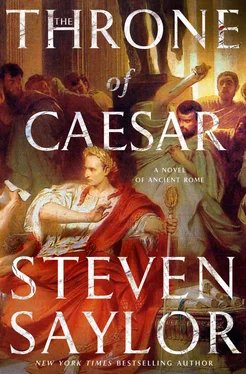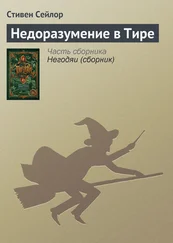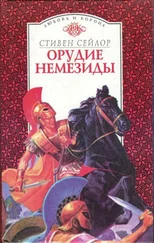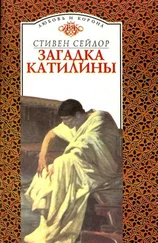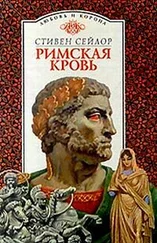Стивен Сейлор - The Throne of Caesar
Здесь есть возможность читать онлайн «Стивен Сейлор - The Throne of Caesar» весь текст электронной книги совершенно бесплатно (целиком полную версию без сокращений). В некоторых случаях можно слушать аудио, скачать через торрент в формате fb2 и присутствует краткое содержание. Год выпуска: 2018, Издательство: St. Martin's Press, Жанр: Исторический детектив, на английском языке. Описание произведения, (предисловие) а так же отзывы посетителей доступны на портале библиотеки ЛибКат.
- Название:The Throne of Caesar
- Автор:
- Издательство:St. Martin's Press
- Жанр:
- Год:2018
- ISBN:нет данных
- Рейтинг книги:5 / 5. Голосов: 1
-
Избранное:Добавить в избранное
- Отзывы:
-
Ваша оценка:
- 100
- 1
- 2
- 3
- 4
- 5
The Throne of Caesar: краткое содержание, описание и аннотация
Предлагаем к чтению аннотацию, описание, краткое содержание или предисловие (зависит от того, что написал сам автор книги «The Throne of Caesar»). Если вы не нашли необходимую информацию о книге — напишите в комментариях, мы постараемся отыскать её.
The Throne of Caesar — читать онлайн бесплатно полную книгу (весь текст) целиком
Ниже представлен текст книги, разбитый по страницам. Система сохранения места последней прочитанной страницы, позволяет с удобством читать онлайн бесплатно книгу «The Throne of Caesar», без необходимости каждый раз заново искать на чём Вы остановились. Поставьте закладку, и сможете в любой момент перейти на страницу, на которой закончили чтение.
Интервал:
Закладка:
“Exactly. A horrible accident, people would say. The brainless mob mistook one Cinna for the other.”
“You think like a man,” I said. It was not a compliment.
“To control men, one must be able to think like one.”
“And this was all done because Sappho told you that Cinna … she claimed that he…”
“ Claimed? Is that why you’re here, Finder, because you think your drinking companion was falsely accused? You imagine his poor, half-mad daughter concocted such a story?”
“What proof did you have that Cinna did such a thing? If it was only Sappho’s word—”
“Cinna’s own words convicted him.”
“Do you mean the Zmyrna ? It’s only a poem, Fulvia. A fantasy, based on ancient legend. Cinna didn’t invent the story. Yes, it obviously fascinated him—”
“I don’t mean that odious poem. As I said, his guilt was proved by his own words.”
“You confronted him?”
“I had no need to.” She crossed the room and took a small box from a shelf. From a silver chain around her neck she produced the key required to unlock it. From the box she pulled a small, rolled parchment.
“What is that?” I asked.
“A bit of writing by Cinna that we did not burn on his funeral pyre. See for yourself.” She thrust it into my hand.
LI
I unrolled the parchment. It was a letter addressed to “My darling Sappho” from “Your loving father.”
There were other words, but my eyes seemed of their own volition to land on the most pertinent. The handwriting was unmistakably Cinna’s.
Obviously you’ve enjoyed it, from the very first time. Any child would. I think you invited it. Yet you waste your time (and your art) doting on some imaginary wound I inflicted on you. (Show me no more hand-wringing poems on this topic, I implore you!) Leave behind this invented guilt and face the truth, that the act gives pleasure to us both; that it means everything or nothing, whichever you choose.
I let out a gasp. “But why would he write such a thing?”
“Sappho and her father exchanged a great many letters over the years. Can you imagine? Living in the same house but writing long letters back and forth? It was a queer relationship in every way. I could show you letters with passages even more explicit. But that one gives you a rather good sense of the man, I think—of his absurd self-justification. He actually believed that his daughter invited his attentions, wanted them, craved them. In his mind, it was she who seduced him —just as in that vile poem!”
“King Cinyras was famously handsome,” I said quietly. “Almost divinely so. Irresistible … even to his own daughter—”
“As Cinna believed himself to be.” She saw me shake my head. “Oh, yes! In some letters he even makes a play on the similarity of their names, Cinyras and Cinna. As if they were one and the same.”
“Yet he named his daughter Sappho, not Zmyrna.”
“Yes, named her Sappho—and then mocked her poems. That’s in the letters, as well. We have some of her letters, but none of her poems, because she burned each one after it earned his scorn. Yet she kept writing new ones. How desperately she wanted to please that revolting man, in any way she could.”
“She would never have killed Cinna herself,” I said.
“No. Nor would any man ever have seen to his punishment. He broke no law. Within his own home, the supremacy of a father’s will is beyond question. Other men might detest his behavior, but no statute forbids it. So it fell to us, to the women, to do what had to be done—with the help of Father Liber.”
“The poem was his fantasy,” I whispered. “If only the fantasy had been enough for him! He had to make it reality. At such a cost!”
“Like Caesar,” said Fulvia.
“What? How, like Caesar?”
“Cinna had a fantasy of rape and power. He made it real, and ruined his daughter’s life—and his own, in the end. Caesar, too, had fantasies of rape and power—the rape of whole cities, whole nations; the power to rule over every other man on earth, to the end of his days, and to do so seated on a golden throne! Well, he got his wish, didn’t he? Would that such a fantasy had stayed in his imagination! Instead, he made it real, at the cost of hundreds of thousands, perhaps millions, of deaths—not just those in combat, but all the multitudes of women and children who died from starvation and pestilence and the cruelties of enslavement. Caesar was the progenitor of countless crimes. ”
“And your Antony—how is he any different? Will he not follow Caesar’s example, if he can? Does he, too, desire a golden throne?”
She flashed a bitter smile. “Yes, all men are the same. But some are more useful than others. Cinna or Caesar: Which man’s fantasy would you have put a stop to, if you could?”
“The question is unfair. Why not imagine a world in which men never have such fantasies?”
“Yes, that might be a better world. Or better still, a world without people in it. Without gods, as well. Or even animals. Only stone and water and sunshine and air. A perfect world without suffering or cruelty or death, unchanging, stretching on for all eternity.”
“But we don’t live in such a world, Fulvia. We live in a world that teems with life of every sort, with every man and beast in desperate competition with every other, sometimes even with the gods.”
“So we must simply put up with men like Caesar, or my Antony—or try to harness them for our own uses. But we need not put up with men like Cinna.”
For a long moment, I was lost in thought. Fulvia, too, was silent.
I cleared my throat. “I know now who killed Cinna, and why … but not how, exactly, or what became of him.”
“Are you sure you want to know?”
“Yes.”
She stepped away from me and slowly paced the room. “We always planned to behead him, and to tear off certain parts of his anatomy, those parts which had offended all decency—the hand that wrote the words, the vile genitals that committed the outrage. As Maenads, we knew we could rely on the unwavering power of Dionysus to give us the necessary strength. To inspire us further, we burned myrrh to infuse our clothing with the scent—myrrh in honor not of any man or poem but in memory of Zmyrna, defiled by her father, and the tears she shed. Let it be the last thing Cinna smelled, along with the stench of his own blood!”
“His blood,” I whispered. “The paving stones were soaked with it—yet afterward, there was no flesh to be seen.… ”
“The blood was quite important, for the purification ritual.”
“Ritual?”
“Thrice we suck a bit of the victim’s blood into our mouths, and thrice we spit it out. Thus the act is made pleasing to Father Liber. But there is an even more ancient blood ritual, an act of expiation, almost never performed nowadays.…”
“Yes? Go on.”
“Because of the crowd all around us, the Maenads had to act almost in silence—no shrieks or shouts to work up our frenzy, for our feminine voices would give us away. Usually her voice is the only way a woman is allowed to vent her emotions, either that or some violence against her own body, tearing her hair or rending her cheeks. We silenced our voices, and instead we took action. That enforced silence caused our frenzy to become all the more intense. So frenzied, so intense…”
“Yes? Go on!”
“We touched the very face of the god that day,” she whispered, staring into the distance. “Thrice we were to lick the blood from his severed parts, and thrice to spit it out—thus those organs could never again harm us, could never take revenge either in this world or the next. Even the Furies would be assuaged. His head, his hands, his genitals—severed and rendered powerless forever. But the Maenads became truly mad, all of us, all at once. We reached back into the deepest, darkest past. We enacted the blood ritual at its most primitive and most powerful. No man can ever hope to reach such a state of divine frenzy—only those of us who follow Father Liber.”
Читать дальшеИнтервал:
Закладка:
Похожие книги на «The Throne of Caesar»
Представляем Вашему вниманию похожие книги на «The Throne of Caesar» списком для выбора. Мы отобрали схожую по названию и смыслу литературу в надежде предоставить читателям больше вариантов отыскать новые, интересные, ещё непрочитанные произведения.
Обсуждение, отзывы о книге «The Throne of Caesar» и просто собственные мнения читателей. Оставьте ваши комментарии, напишите, что Вы думаете о произведении, его смысле или главных героях. Укажите что конкретно понравилось, а что нет, и почему Вы так считаете.
